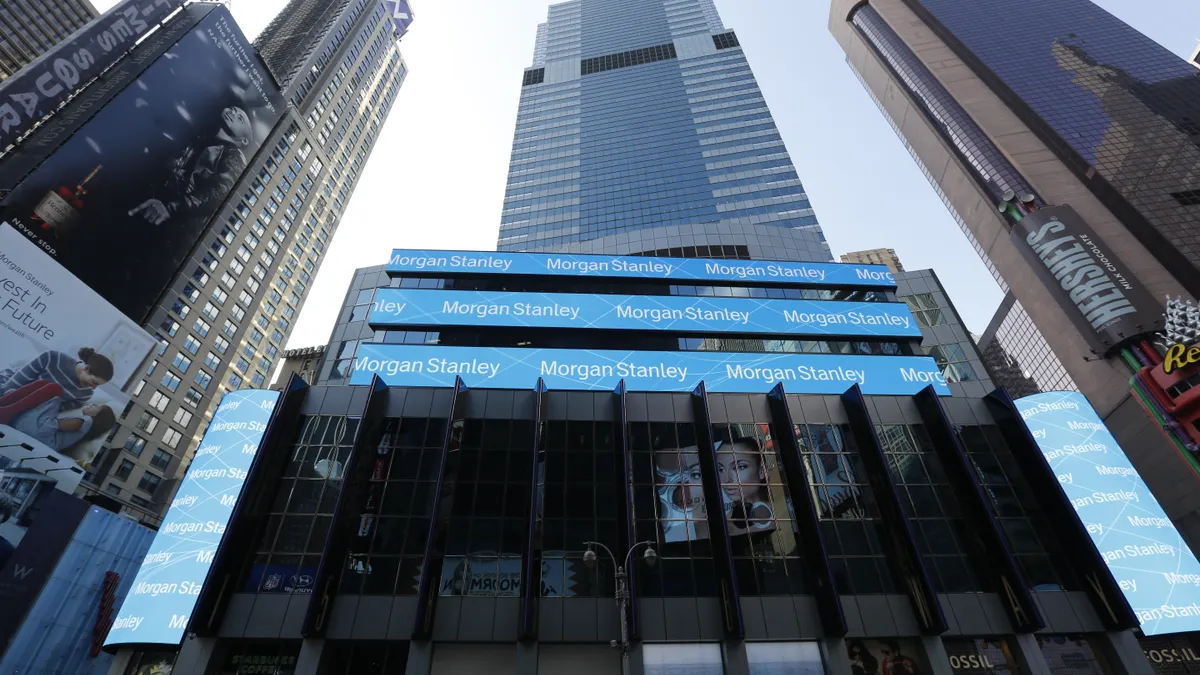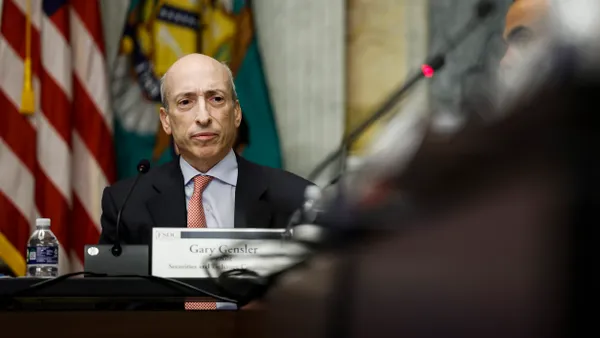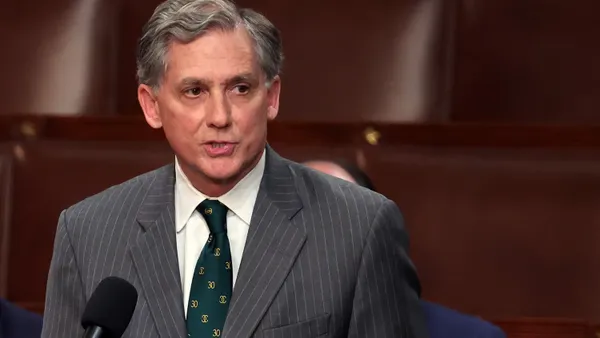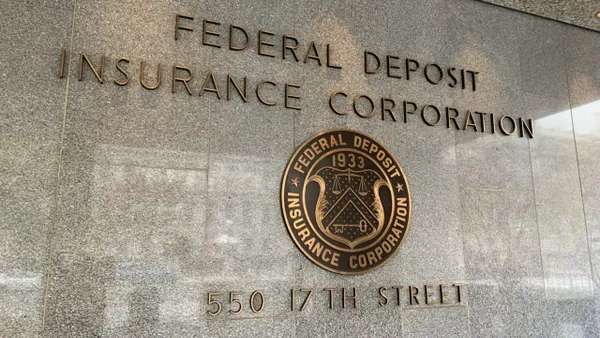Morgan Stanley was fined $2 million by a Massachusetts regulator over its failure to monitor certain stock sales by a former First Republic CEO during the months leading up to the collapse of the California bank in March last year, according to a consent order issued Thursday.
Morgan Stanley failed to properly vet the former First Republic CEO, identified as "Customer One," who sold over $6.8 million in First Republic stock from February 2022 to March 2023 — just three days before the bank's stock price plunged, according to the consent order.
By failing to properly monitor the client's trading activity, Morgan Stanley allowed the former executive to potentially avoid “a near complete loss,” William Galvin, Massachusetts’ secretary of the commonwealth, noted in a statement Friday.
Morgan Stanley’s compliance manual prohibits its agents from allowing clients to trade on material nonpublic information, yet the firm’s employees did not confirm whether the former CEO was acting on inside knowledge.
They “also dismissed a series of red flags concerning the sale of more than $6.8 million in FRB stock by the insider,” Galvin said.
Morgan Stanley also identified public statements made by the CEO regarding First Republic's operations that were later found to be inaccurate, according to the order.
The former CEO is not named in the consent order, but The Wall Street Journal identified him as James Herbert II. Herbert founded First Republic in 1985 and served as CEO for 36 years. He became executive chair in 2022.
Morgan Stanley offered to settle with the regulator Tuesday, neither admitting nor denying the findings stated in the consent order.
“Morgan Stanley is pleased to have resolved this matter,” a bank spokesperson told The Wall Street Journal. A spokesperson for Herbert declined to comment.
The consent order highlights compliance lapses in Morgan Stanley’s wealth unit. The trades were executed by a California branch serving ultra-high-net-worth clients and were overseen by a managing director who was a registered agent of Morgan Stanley in Massachusetts since 2008 and now serves as a wealth adviser in California.
As a First Republic insider, the former CEO's sales were subject to additional review by Morgan Stanley’s executive financial services, specializing in trades by company executives.
However, Morgan Stanley did not confirm whether he possessed nonpublic information, and the EFS team determined his trades did not require their approval since First Republic's shares were regulated by the Federal Deposit Insurance Corp. and not the Securities and Exchange Commission.
As a result, the coding that would have routed the trades to the EFS team was removed. It was only after First Republic’s stock price collapsed that Morgan Stanley's monitoring system flagged the former CEO’s recent sales for possible insider trading.
Morgan Stanley had no specific policies to address transactions made on behalf of insiders at companies reporting to the FDIC, according to the consent order. Further, the firm removed a notation identifying the former First Republic CEO as an affiliate, causing compliance checks to be bypassed.
When reviewing potential insider trading alerts, Morgan Stanley’s monitoring officer incorrectly concluded there was no relationship between the customer and First Republic after just a minute – “something that could have been easily identified through a straightforward internet search,” Galvin noted.
The investigation also uncovered instances of off-channel communications by the managing director servicing the accounts, including a failure to retain text messages — a practice that limited the regulator’s scope of review of all the business-related communications, according to the consent order.
Morgan Stanley was fined $200 million by the SEC and the Commodity Futures Trading Commission in 2022 over its use of unapproved messaging platforms and its inability to keep track of those communications.
In addition to a $2 million fine, Morgan Stanley has been ordered to review its policies and provide training to prevent such lapses in the future.












